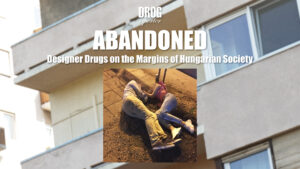The Hungarian drug market was affected by the COVID-19 crisis but it is far from being disrupted – read an English summary of an online survey conducted by Drugreporter among its Hungarian readers.
A short online survey was shared on the Hungarian-language Drugreporter Facebook page and blog, for those who had purchased illegal substances under current restrictions. Almost 600 valid responses arrived by the end of April. The survey aimed to collect data about the effect of the Covid-19 restrictions on the domestic illicit drug market.
The survey asked how the price of drugs, their amount and quality, and their availability had changed, if at all. The authors were also curious to find out whether there had been any major changes in the market – whether there was an increase or decrease of the role of dark web purchases, as well as how users’ behaviour had changed and to what extent they are able to receive help, if needed.
The majority of respondents were young (50% 25-29 y.o. and 30% 18-24 y.o.). 73% were male, 27% female. 50% are full-time workers, 14% entrepreneurs, and 16% are students. The proportion of unemployed respondents was 9%, and 4% were on unpaid leave. The majority (53%) live in Budapest or the Budapest metropolitan area, 16% in county seat cities, 19% in other towns, whilst 11% live in villages.
With respect to the prices, it seems that there was no significant increase. An increase in drugs prices were reported by only 33% of cannabis buyers, 29% of hashish buyers, 18% of Ecstasy pill buyers, 30% of crystal MDMA buyers, 21% of LSD buyers, 31% of cocaine buyers, and 26% of amphetamine buyers. The largest proportion of price increase was reported by buyers of new synthetic stimulants (42%). Meanwhile, it seems that the restrictions influenced the market for synthetic cannabinoids to a smaller extent – only 5% of buyers reported price increases.


Another question addressed the situations where, for example, a dealer sells something as one gram, but in reality it’s much less. There only appear to be serious decreases in quantity in the case of cocaine (35% of buyers reporting such cases), heroin (50% of buyers) and other party drugs (50%). The latter two substances need to be taken cautiously due to the low number of respondents.
Regarding the quality of drugs, 44% of synthetic stimulant buyers reported lower quality of drugs. In the case of cannabis and hashish, 67% and 82% of buyers reported unchanged quality, respectively.
Meanwhile, there are drastic changes in the area of drug availability. 58% of cannabis users and 56% of hashish users complained that it’s more difficult to purchase these drugs than it was before the crisis. For users of amphetamine that number is 41%, cocaine – 31%, crystal MDMA – 40%, Ecstasy pills – 31%. This is also indicated by the fact that 24% of respondents bought substances from different sources than those they used before the restrictions. These new sources, however, do not include dark web markets – only 1.6% of respondents reported buying on the dark web, and all of them already used this source before the crisis.
The survey authors were concerned that people who – due to Covid-19 restrictions – don’t have access to their drug of choice, will start using other substances. The survey, therefore, also asked whether the drugs purchased during the restrictions were the ones they wanted initially, or were instead substitutes/replacements. 96% of respondents bought what they wanted originally, while 4% bought something else instead. Unfortunately, in this group were also respondents who could purchase only synthetic cannabinoids instead of cannabis, or new synthetic stimulants instead of MDMA. There was even one respondent who bought stimulants instead of cannabis.


The survey also asked whether the purchased substance did indeed contain the drug it was bought as. 93% of respondents answered “yes”, which suggests there are no massive scams.
Another area of interest was to what extent dealers keep to the physical distance and precautionary rules. 38% of buyers reported their dealer was keeping the correct distance, and according to 20% they also wear gloves and face masks. Unfortunately, only 20% of respondents agree that there is a need to disinfect the drug packaging after returning home. 18% of respondents feel that it was more difficult to find the money for drugs than before the crisis.
Many people were concerned that during the lockdown significantly more people will use drugs. Only 29% respondents found it characteristic or completely characteristic for themselves that they “have difficulties in standing the quarantine, hence they use substances more often”. It also seems that only a small proportion of current users think that quarantine is a good opportunity to give up drugs: 16% of respondents answered that they will try to give up.
The proportion of people who accumulate drugs for a longer period of time does not seem to be remarkably high either (29%), and most people still buy or want to buy during the crisis. The proportion of people who try to avoid the police more under the restrictions is higher (39%), but still lower than the proportion of people who say that increased police avoidance is not characteristic for them at all (44%). 13% of respondents said that they lost their livelihood due to the crisis, which puts a lot of stress on them.

The last part of the survey was concerned with the possibility of getting help, if needed. Unfortunately, among those respondents who consider this relevant in their case, 41% think that they would have more difficulties in getting help, while 45% think that it’s more difficult to bear the withdrawal symptoms during the pandemic. Among those for whom the topic is relevant, 53% reported more difficult access to the substitution treatment, and 63% to sterile syringes. Access to basic necessities (food, water, etc.) was considered more difficult by 21%.

The research sample was not representative and it did not cover every group of people who use drugs in Hungary – middle class, better educated cannabis and party drug users with a stable income are overrepresented among the readers of Drugreporter. The survey does not provide an insight into what is happening with marginalised communities, such as in urban ghettoes and segregated Roma settlements in rural regions. It remains an open question as to whether the current crisis will have long-lasting impact on drug markets if lockdown measures continue. Drugreporter intends to repeat this survey in a few months.
Article of Péter Sárosi summarised by Iga Kender-Jeziorska in English






